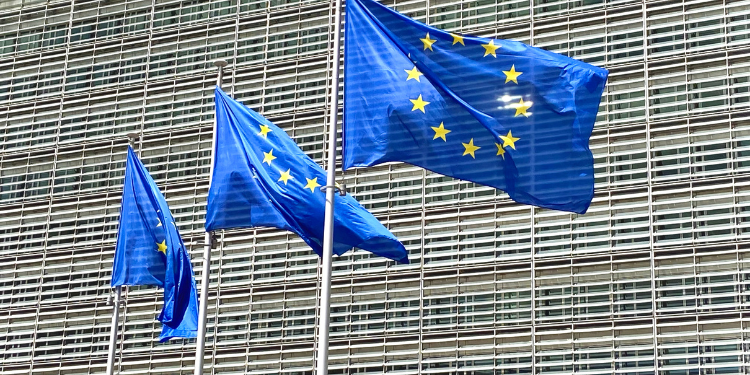European Commission work program 2025: Towards a European Defence Union
The European Commission presented its work program for 2025 entitled “Moving forward together: a Bolder, Simpler, Faster Union”, outlining a broad set of initiatives aimed at strengthening the EU’s strategic autonomy and overall capacities. While the program prioritizes simplification to drive investment and competitiveness through measures such as the Omnibus proposals, the Industrial Decarbonisation Accelerator Act, and the Clean Industrial Deal, defence and security are now more integrated than ever into the EU’s broader policy framework. As Europe navigates an increasingly complex geopolitical landscape, ensuring a robust and resilient defence sector is no longer just a strategic ambition but it has become a necessity.
To begin with, initiatives like the Omnibus proposals or the Clean Industrial deal align with the Green Deal and the goal of climate neutrality the defence sector also plays a vital role. Through such policies and measures, the military can progress toward decarbonisation. Key challenges include ensuring an effective transition to clean energy without compromising operational effectiveness, providing specialised training for military personnel, while also fostering cooperation among EU Member States.
Furthermore, Europe must be empowered to better anticipate, prevent and be prepared for crises. As new global threats and insecurities emerge, the Preparedness Union strategy will serve as the foundation for a stronger, better prepared and more resilient Union. Besides, the Preparedness Strategy will also address military matters, especially given that military capabilities are nowadays required even for nonmilitary crises, as climate and environmental hazards. It has also been recognized that the military is heavily affected by such events and needs to enhance its resilience and preparedness.
Another key focus of the program will be to strengthen social fairness. Hence, the Commission will work on a new Action Plan on the Implementation of the European Pillar of Social Rights, the quality of jobs roadmap and the Union of Skills, which will tackle skills and labour gaps, ensuring that businesses have access to the skilled workforce necessary.
Undoubtedly Europe needs a strong defence industry, but without the necessary personnel and skills, any development on the industrial side will be ineffective. The issue is also recognised at the Niinistö Report, which highlights the need to attract younger generations to careers in defence, security, and emergency response. To achieve this goal, targeted incentives should be developed in collaboration with trade unions and employers’ organizations and these efforts could be integrated into the Quality Jobs Roadmap.
Overall, it has become evident that defence will be at the core of the new Commission’s mandate. Beyond increasing capabilities, investments and strengthening the European Defence Industrial and Technological Base (EDTIB), defence has now been incorporated in a variety of policies that were not traditionally linked with it before. Building a European Defence Union (EDU) – was never so high on the agenda as it is today. Moreover, the upcoming White Paper is seen as an essential part towards building a strong European Defence Union (EDU), where Europe’s Armed Forces are well prepared for any type of military contingencies. Hence, EUROMIL believes that increased cooperation, clear definition of capability needs, and addressing the current issues of recruitment and retention should be at the heart of it.
Lastly, the forthcoming Roadmap for Women’s Rights, along with new strategies on LGBTIQ inclusion and anti-racism, can play a crucial role in shaping the future of the Armed Forces. A truly modernized and resilient military requires not only strong operational capabilities but also an inclusive and diverse workforce. By fostering equal opportunities and creating a supportive environment for underrepresented groups, these initiatives can help attract and retain top talent, enhance unit cohesion, and ultimately strengthen overall defence readiness. Ensuring that diversity and inclusion are embedded in recruitment, training, and leadership structures will be key to building armed forces that are both fit for the future and reflective of the societies they protect. Overall, the Commission’s 2025 work program highlights that in today’s rapidly evolving and complex geopolitical landscape, military and defence have become integral to numerous EU policies and initiatives.

